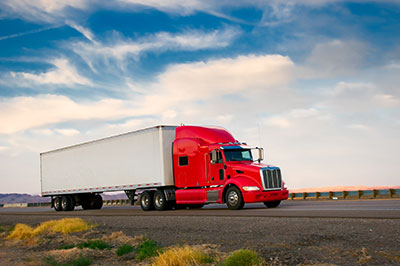
Commercial Auto Insurance: What Qualifies as a Commercial Vehicle?

Auto insurance can be confusing when it comes to running a business. Most drivers already have personal auto insurance and believe their work vehicles are covered, but this isn’t usually the case. If you have employees driving personal vehicles or sharing company vehicles, personal auto insurance won’t necessarily extend in case of a loss or accident.
In Texas, most businesses are required to carry commercial auto insurance. Qualifications for a vehicle to be considered a “commercial vehicle” can vary per state. Commercial motor vehicles in Texas are self-propelled or towed vehicles weighing less than 48,000 pounds either gross or registered as well as used on public highways to transport cargo or passengers. Other qualifications include:
- Weighs (gross or registered) over 26,000 pounds
- Can transport over 15 passengers at once
- Used to transport hazardous materials
These are simply the qualifications for a “commercial vehicle” in Texas and are not the only vehicles that should carry commercial auto insurance. There are other requirements for commercial auto insurance that vary per state, such as the type and amount a business must carry.
Texas requires a business to carry commercial auto insurance on both commercial vehicles and personal vehicles if those vehicles are being used for business purposes. Commercial vehicles must carry at minimum $500,000 for liability while commercial vehicles transporting hazardous material may be required to carry at least $5 million. Other vehicles that require commercial auto insurance are:
- Buses must carry no less than $500,000 for liability.
- Foreign buses must carry no less than $1.5 million for 15 or fewer passengers and no less than $5 million for 16 or more passengers for liability.
- Farming vehicles weighing more than 48,000 pounds in gross weight must carry no less than $500,000 for liability.
What’s the Difference Between a Commercial Vehicle and a Fleet Vehicle?
A fleet vehicle is a vehicle that’s part of a company’s fleet. A fleet is a group of vehicles owned or leased by a business or organization. Though a fleet can have as many cars as it wants, fleets include at least two cars. Commercial vehicles can be fleet vehicles if they’re not privately owned. Commercial vehicles also have a strict guideline stated above as to what qualifies them to be a commercial vehicle. Typically, these vehicles are built for a certain purpose and weigh a certain amount, while a fleet vehicle can be anything, including buses, cars, trucks and more.
Does Commercial Auto Insurance Cover Fleet Vehicles?
Commercial auto insurance covers any vehicle used or owned by a business, including fleets. Fleets possibly need the most commercial auto insurance since fleets contain multiple cars and there are most likely multiple drivers. When there are multiple drivers, you can often tailor your policy to cover any driver that uses the vehicle or only a list of named drivers for specific vehicles.
How Much Does It Cost to Insure a Commercial Vehicle?
There are a lot of variables that can affect your commercial auto insurance policy. This includes the number of vehicles, drivers and driving records. On average, commercial auto insurance for cars may cost around $1,200-$2,400 while commercial bus insurance costs around $35,000.
Even small businesses should investigate commercial auto insurance. Industries that require travel or transportation may require commercial auto insurance as opposed to personal auto insurance. If your business transports people and hazardous belongings, it’s especially important to carry a policy that covers liability in case of injury or death. Shop around your area and speak with an agent about the type and amount of coverage your business’ vehicles need.
Categories: Blog
Tags: auto insurance, commercial vehicle, fleet vehicles, insurance
